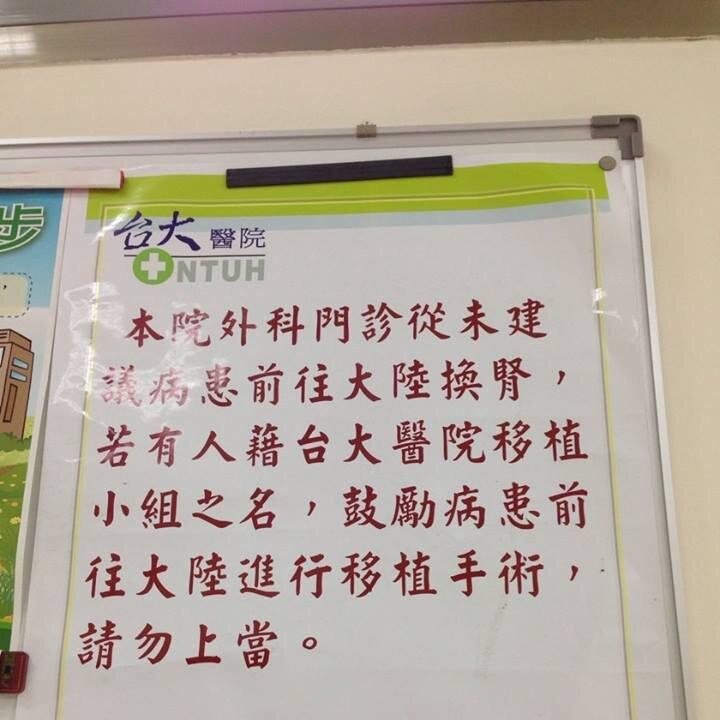Late last year the Chinese Communist Party’s organ transplantation czar, Huang Jiefu, made an unusual proposal—that maybe in the future, Taiwanese patients would be able to have Chinese organs packed onto planes and flown to them to be transplanted in their own hospitals. The offer is odd because it would be a twist on the theme of “transplant tourism,” which is generally frowned upon, especially in the circumstances under which China offers it: organs from executed prisoners.
Recently, the National Taiwan University Hospital, one of the largest and most prestigious in the country, made its own views on the matter clear enough, with a notice on the board of one of its waiting rooms.
“The outpatient clinic of this hospital has never recommended any patient to go mainland China for kidney transplants. If anyone uses the name of the Organ Transplant Team of the National Taiwan University Hospital to encourage patients to go to the mainland for organ transplant, please do not be fooled.”
Signatories to the statement include well known doctors like Lee Po-Huang, former chairman of the department of surgery at NTUH, and Dr. Hu Ray-Heng, the vice director of surgery.
New Tang Dynasty Television, a Chinese-language broadcaster with operations in Taiwan, interviewed citizens in the vicinity of the hospital who remarked that they found China’s transplantation practices to be “inconceivable.”
A Ms. Chen remarked that “some people don’t even enquire as to the source of the organs. I heard say of a kidney available for purchase for $1 million Taiwan dollars,” or about US$30,000.
Liu Yu-ching, a representative of the Ministry of Health and Welfare, remarked in December that the idea was “not feasible.”





